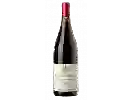
Winery Pierre BrevinLa Planchelière Sauvignon Blanc
This wine generally goes well with vegetarian, rich fish (salmon, tuna etc) or shellfish.
Food and wine pairings with La Planchelière Sauvignon Blanc
Pairings that work perfectly with La Planchelière Sauvignon Blanc
Original food and wine pairings with La Planchelière Sauvignon Blanc
The La Planchelière Sauvignon Blanc of Winery Pierre Brevin matches generally quite well with dishes of rich fish (salmon, tuna etc), shellfish or vegetarian such as recipes of potato and smoked salmon gratin, small cuttlefish a la plancha or mushroom, bacon and gruyere quiche.
Details and technical informations about Winery Pierre Brevin's La Planchelière Sauvignon Blanc.
Discover the grape variety: Blanc vert
In the past, Blanc Vert was found in the vineyards of La Ville Dieu du Temple in the Tarn et Garonne and Fronton in the Haute Garonne, very often "mixed" with other grape varieties such as Negrette. Today, it is no longer present in the vineyards.
Last vintages of this wine
The best vintages of La Planchelière Sauvignon Blanc from Winery Pierre Brevin are 2018
Informations about the Winery Pierre Brevin
The Winery Pierre Brevin is one of of the world's great estates. It offers 25 wines for sale in the of Loire Valley to come and discover on site or to buy online.
The wine region of Loire Valley
The Loire Valley is a key wine region in western France. It follows the course of the Loire River on its Long journey through the heart of France, from the inland hills of the Auvergne to the plains of the French Atlantic coast near Nantes (Muscadet country). Important in terms of quantity and quality, the region produces large quantities (about 4 million h/l each year) of everyday wines, as well as some of France's greatest wines. Diversity is another of the region's major assets; the styles of wine produced here range from the light, tangy Muscadet to the Sweet, honeyed Bonnezeaux, the Sparkling whites of Vouvray and the juicy, Tannic reds of Chinon and Saumur.
The word of the wine: Beurré
Typical aroma of white wines aged in oak barrels and wines that have undergone malolactic fermentation.














